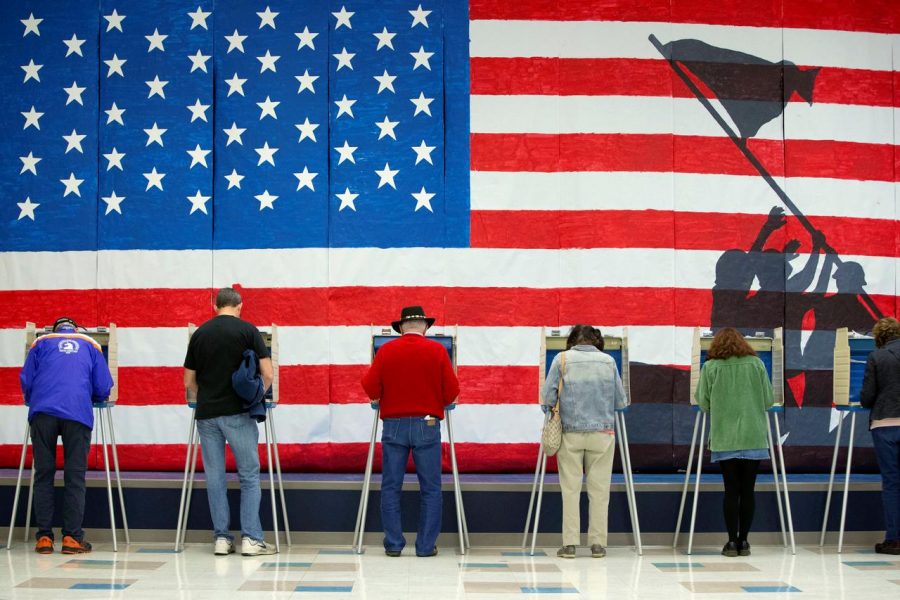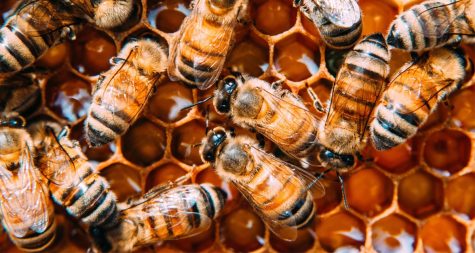What is a caucus?
An explanation of the 2020 primary election system
As the 2020 elections move closer, the process of picking a Democratic and Republican candidate seems to dominate the news cycle. But how does this process really work? Both primaries and caucuses seek to award a candidate delegates for the party’s national convention, which chooses a single candidate for each party to run in the general election.
First, let’s start with the primary system. All primaries are run by the state/local election officials. In the presidential primaries, there are two types of elections. Open primaries mean that voters do not have to formally affiliate with a party to vote in their elections, and can vote in either primary as long as they are registered to vote with the state. 15 states (including Texas) operate open primaries, and proponents say that these elections encourage voter participation and protect voting privacy of citizens. Closed primaries, on the other hand, require that voters formally register with a party before the day of the election in order to be able to vote in that primary. These primaries can proportion delegates in a proportional or winner-take all method (although the winner-take all method is only present in 8 states on the republican side).
Some states also use caucuses to determine which candidates their delegates will represent. Caucuses require that participants spend a significant amount of time at specific caucusing locations in each community. In the republican party, caucuses include speeches and conversation with political representatives, then the casting of a secret ballot. The democrats, on the other hand, have a more complicated process. All voters are gathered into a large room and asked to group themselves by candidate. If any candidate has less than 15% of the vote, that candidate is dismissed and the people who supported them move to another candidate’s grouping. This process of re-alignment continues until all candidates have more than 15% of the vote. The final process of selecting delegates from this process varies state by state. These caucuses, like the primaries, can also be opened are closed.
Texas has an open primary, the ballot of which will include partisan candidates for the presidency, U.S. Senate, offices of Congress, legislative offices, the State Board of Education, the Judiciary, and the Railroad Commission. Early voting began February 18th and ends on February 28th, and election day occurs on March 3rd. Texas is one of the 14 states who vote on Super Tuesday to determine which candidates will receive the support of Texas’ 228 pledged democratic delegates and 155 republican delegates.
In The Woodlands, voting will occur in community centers, and registered voters may place their early voting ballot at any voting center in their precinct. On election day, voters in Harris County may vote in any approved polling place in the county, as Harris County has been deemed eligible for the County Wide Polling Place Program.
Even after all of the delegates are decided from each state, the complex process of voting in a general election candidate is not over. When delegates get to their party’s convention, the candidate that they pledged to may have dropped out of the race. In this case, delegates may vote on their own conscious or they may vote for the candidate that their original candidate endorsed. There is also the concept of superdelegates, delegates that are un-affiliated with a candidate going into the general election. On the democratic side, there are 771 superdelegates participating in the national convention. At the conventions, the candidate with the majority of delegates’ votes will become the party’s nominee for president.
Sources:
https://ballotpedia.org/Open_primary
https://www.thoughtco.com/what-is-an-open-primary-3367495
https://ballotpedia.org/Closed_primary
https://www.lifegate.com/people/news/us-presidential-primaries-explained
https://people.howstuffworks.com/question7211.htm







